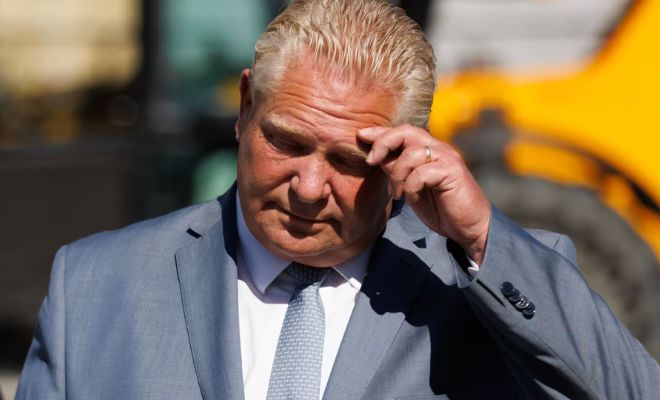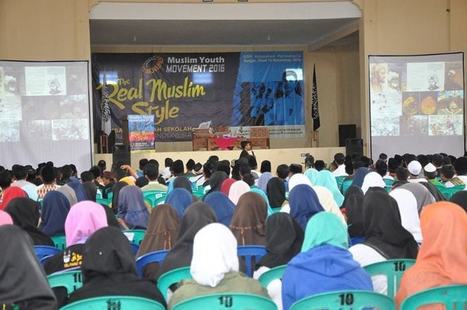The Quest for Tranquility in Marital Life

When the wedding celebrations are over, and husband and wife settle down in their new lives many find it is not what they hoped for or expected. As the euphoria and novelty runs out and gives way to routine and normality, the marriage relationship becomes strained as both spouses struggle to get through life. Constant arguments, bickering and unhappiness pervades the atmosphere with little or no hope of a resolution. This problem in the marital life is so widely felt that we would scarcely find a person who does not know of a close family member or relative who is not in this predicament.
Whilst it is inevitable that not every marriage will succeed or be without its fair share of problems, the marital discord and misery we see today cannot simply be attributed to the incompatibility which can sometimes occur between two people. Rather a deeper study into the widespread problems and misery we witness will reveal that it is due to a lack of the correct criteria and thoughts – this is the cause of disharmony and the lack of tranquility between spouses.
If one were to dissect the criteria and thoughts being used by Muslims living in the West one would find that generally speaking, they are caught between two reference points.
Do they follow the customs and traditions of their elders in marriage and marital affairs, or do they embrace western values? The older generation has, by and large, stuck to tradition; but the younger generation growing up in the West is increasingly rejecting tradition in favour of a more western lifestyle.
As a result, we find a whole range of different, and at times contradictory, criteria being used to regulate married life. On one side of the spectrum, we have the traditional culture imported from ‘back home’ whether that is from Bangladesh, Pakistan, Africa or the Middle East. Here we see the prevalence of the criteria of ‘sharam’ and ‘izza’ (shame and dignity).
These have their roots in Islam but over time they have lost their Islamic character and have become subject to people’s whims and desires. This is why we see the inconsistent and oppressive nature of their application. For instance, zina is and should be viewed as a loathsome kabeerah (great) sin; however, we often see that if a man commits it then it can be forgiven and quietly ignored as just something that young men do.
However, if a woman was found guilty of committing this then she would be ostracized and rejected because she has brought dishonour and scandal to the family. Therefore, the true understanding of the sin of zina has been lost in the blur and haze of tradition and a contradictory application is being used.
A similar contradiction from traditional values is the view that a young girl mixing with foreign (ajnabi) men is unacceptable. But on the other hand, no shame is felt when the same girl is forced to marry a man without her consent and approval or even sometimes against her will.
On the other hand we have what can only be described as ‘half-way’ marriages where the concepts and criteria are a jumble of traditional and western values but adopted according to the capitalist criteria of benefit and individual freedom.
For example, in such marriages it is not acceptable that the wife would flirt with other men but it is acceptable for her to mix with men, being uncovered and showing her beauty.
We also find men carrying the western concept of ‘not settling down when young’ and delaying their marriage until they’ve ‘had a good time’. And once in their late twenties or early thirties they will do their social and religious duty in an almost ritual trip to Pakistan or Bangladesh to get married.
Also, we now see the western style of courtship which means finding out if one is compatible or not by dating or ‘getting to know each other’. Hence, the ubiquitous demand of ‘friendship leading to marriage’ often found in the marriage sections of Asian newspapers and magazines.
Western Marriages: Out of the Frying Pan and into the Fire
The West offers individual freedom as the progressive basis of life, and for many Muslims in the West this has become the preferred basis for marriage over tradition.
By individual freedom what’s meant is that an individual is completely free in how he or she lives his or her life.
So, for example it would be perfectly acceptable on this basis for a man and a woman to cohabit together without a contract of marriage just as it is acceptable for two gay men to get married. Muslims should be aware of the dangers that come with adopting freedom as a criterion and should not allow themselves to be duped into thinking freedom and benefit can ever lead to a superior life. Rather, turning to freedom by rejecting tradition is like jumping out of the frying pan and into the fire.
How can the West claim to offer the alternative when its criteria of individual freedom and benefit which by establishing sensual gratification as the paramount concern has led to the misery of millions of people? If we take a quick look at the West’s record, we find that in their societies the top five problems in the social and marital life are:
- Mistrust and Adultery – twenty percent of men cheat compared to 13 percent of women.
- Divorce – one in three ends up in divorce.
- Rape – 167 women are raped every day in the UK.
- Wife battery – a battery incident occurs every 18 seconds in America.
- Child molestation and pedophilia – in Britain a quarter of a million people are known pedophiles!
These are the fruits of freedom, and these should not be considered surprising but in fact are an inevitable occurrence since a solution proposed by man’s limited mind will never be able to address the intricacies of human life and its requirements. Therefore, we need to refer to the Creator (swt), Who is All-Aware of creation and how it is that humanity should regulate their lives.
“Should not He Who has created know? And He is the Most Kind and Courteous (to His slaves) All-Aware (of everything).” [67:14 TMQ]
Rejecting Tradition on the Correct Basis
As for taking tradition as our criteria this can never be accepted, as our only criteria is the Revelation of Allah (swt) and this excludes what our forefathers followed unless it was from what Allah (swt) and His Messenger (saw) brought. In the following ayah, Allah (swt) tells us the basis of acceptance or rejection of tradition:
“And when it is said to them: ‘Come to what Allah has revealed and unto the Messenger.’ They say: ‘Enough for us is that which we found our fathers following,’ even though their fathers had no knowledge whatsoever and no guidance!” [5:104 TMQ]
The reason it is wrong to follow the forefathers is that they did not follow the Revelation and nor were they guided by Allah’s (swt) Guidance. When we reject those areas of tradition, which contradict Islam we should not reject them because they contradict the capitalist concepts of individual freedom and benefit but because they go against what Allah (swt) has revealed.
In other words, just as it is wrong to accept Western love marriages on the basis of freedom and benefit it is equally wrong to reject forced marriages on the basis of the individual freedom and benefit.
The reason both should be rejected is that they are contrary to Allah’s (swt) Revelation and not because they affirm or violate freedom and benefit. Thus, the only criteria a Muslim can follow is the criteria of Halal and Haram and nothing else.
Marriage: What Is It All About?
The current generation either view marriage as a burden, or a custom and a social duty.
They do not understand it is a solution that organizes the male-female relationship so as to bring about mutual tranquility. In fact, many are turning to western values because they find the oppressive elements of tradition unpalatable without realizing that Islam has a unique solution that befits man’s nature.
In Islam marriage is about companionship (suhbah) and not the regimental and strict regime that exists in traditional marriage or the tenuous ‘partnership’ for sex that we find in the West, which is easily dispensed with when the partners get tired or bored.
Allah (swt) informed us of the Hikmah of marriage:
“And among His Signs is this, that He created for you wives from among yourselves, that you may find repose in them (li-taskunoo ilayha), and He has put between you affection and mercy. Verily, in that are indeed signs for a people who reflect.” [30: 21 TMQ]
In this ayah, Allah (swt) makes the wife the source of Sakeenah i.e., repose and tranquility as we can see from the usage of the verb sakana. It is from this same word that we derive the term sakan (dwelling) where people find repose, ease and security when they go home from the toil and tension of outside life. Similarly, married life is a source of tranquility from the strains and stresses of life and not the other way round.
The Concept of Rights and Responsibilities
The West cite empty slogans of friendship and equality as the basis of marital life, but the truth is that what exists is a clash between spouses because there are no defined roles due to the belief in individual freedom. Islam on the other hand did not just talk about companionship but has shown how to realize it by clarifying the rights and responsibilities that spouses have over each other such that they complement each other and bring about mutual fulfilment:
Allah (swt) says,
“And they (women) have rights (over their husbands) similar (to those of their husbands) over them, in reasonable terms.” [2:228 TMQ]
Ibn ‘Abbas (ra) used to say,
“Indeed I spruce myself up for my wife and she adorns herself for me, and I love that I should redeem all the rights I have over my wife, so that she should redeem all the rights she has over me.” [Reported by Ibn Abi Shaybah in his Musannaf]
Islam clearly outlined the role and the rights of both partners in the marriage. The man is the head of the household and therefore he has the final say in matters. He is responsible for providing the maintenance and residence for his family. The wife’s responsibility is to obey the husband in matters relating to the marital life, tend to the housework and to care for the children.
These rights and responsibilities are not unknown but the key concept we need to understand is how these rights and responsibilities are discharged. Allah (subhanahu wa ta’aala) informs us:
“And live with them honourably”. [4:19 TMQ]
He (swt) has commanded spouses to spend their life together (mu’aasharah) in an honourable and fitting manner (bil-ma’roof). What this means is that they live in an atmosphere of care and benevolence. That is why the Messenger (saw) said:
“Indeed, the one most complete in Iman (belief) and best in morals is the one who is the kindest to his wives.” [Reported by Ibn Hibban]
In other words, the rights and responsibilities should be discharged in an atmosphere of companionship. To give us an example of what companionship (suhbah) means on a day-to-day level let us take a glimpse at the life of Muhammad (saw), as he says in his own words.
“The best amongst you is the one who is best to his wives, and I am best to my wives” [Reported by Ibn Hibban]
Despite being the ruler of Madinah, at home he led a very humble life. Aaisha (ra) said:
“He acted like other men; he would mend his clothes, milk his goat and serve himself.” [Reported by al-Bukhari in al-Adab al-Mufrad].
Muslims in Canada face in their social life such as issues of courtship, marriage, divorce, custody, in-law relationships, maintenance and more besides.
Increasingly Muslims are being pushed to resolving these problems by adopting western liberal values. Therefore, we need to be alert to the destructive influence of western concepts and criteria in our lives and begin to study the Islamic solutions on the basis of the Islamic criteria. Finally, marital life is not just about tranquillity in this life. Our fate in the Akhira also depends on us following Allah’s (swt) commands and prohibitions regarding this issue.
Therefore, we must seek to ensure we comply with the rules of Islam in order to achieve tranquility and satisfaction in this life and in the Akhirah to save ourselves from the Hellfire and attain everlasting tranquility in Paradise.









